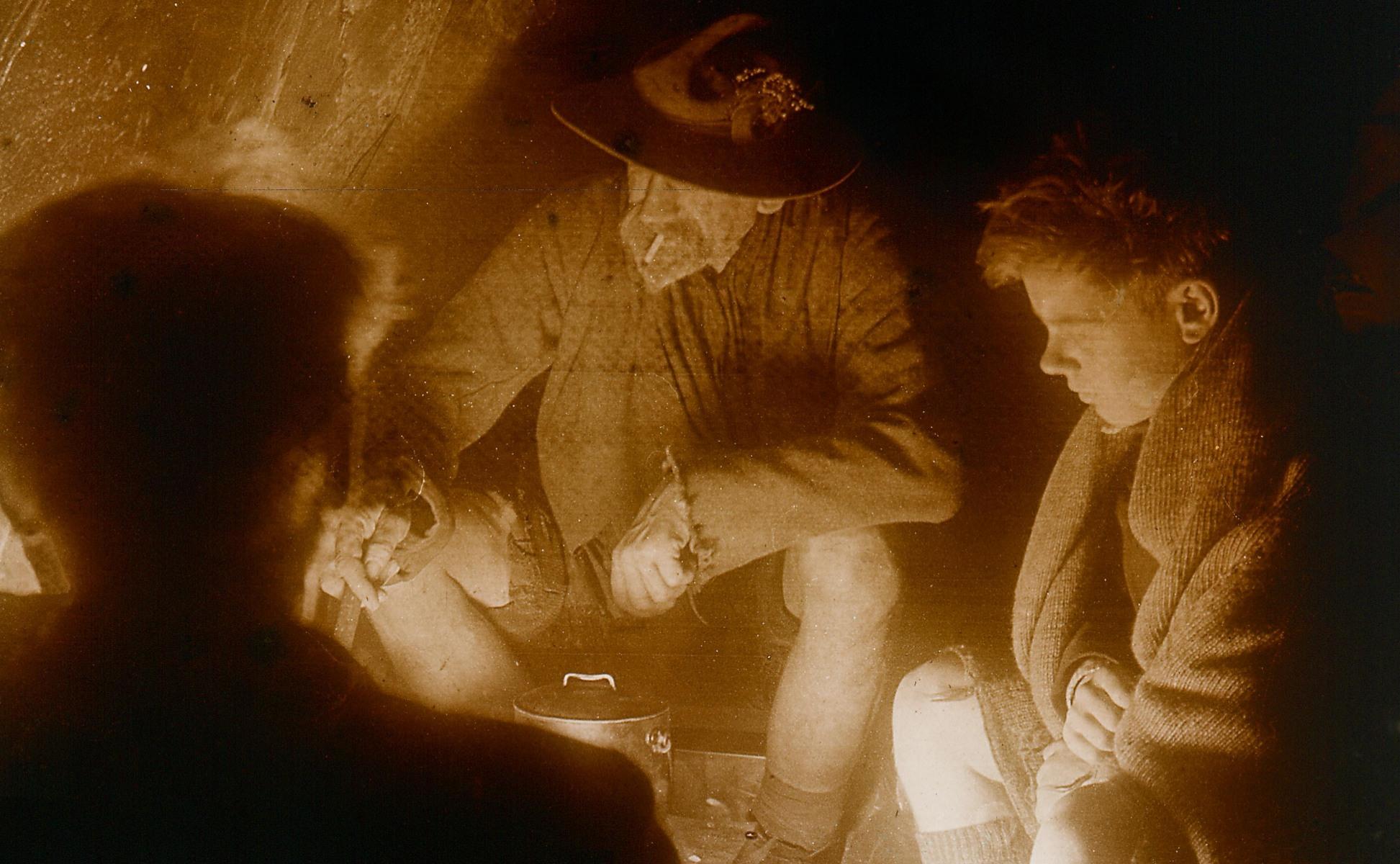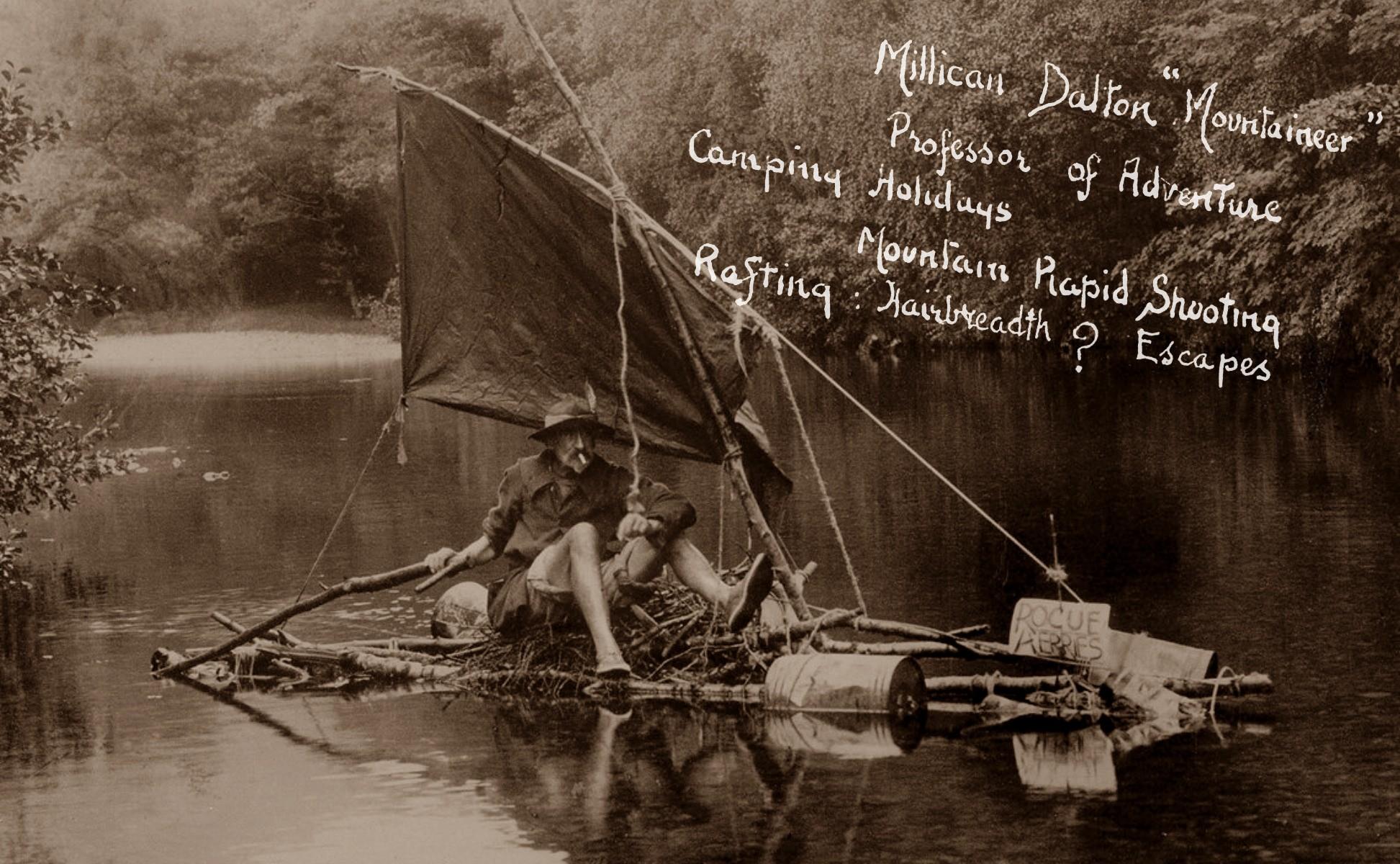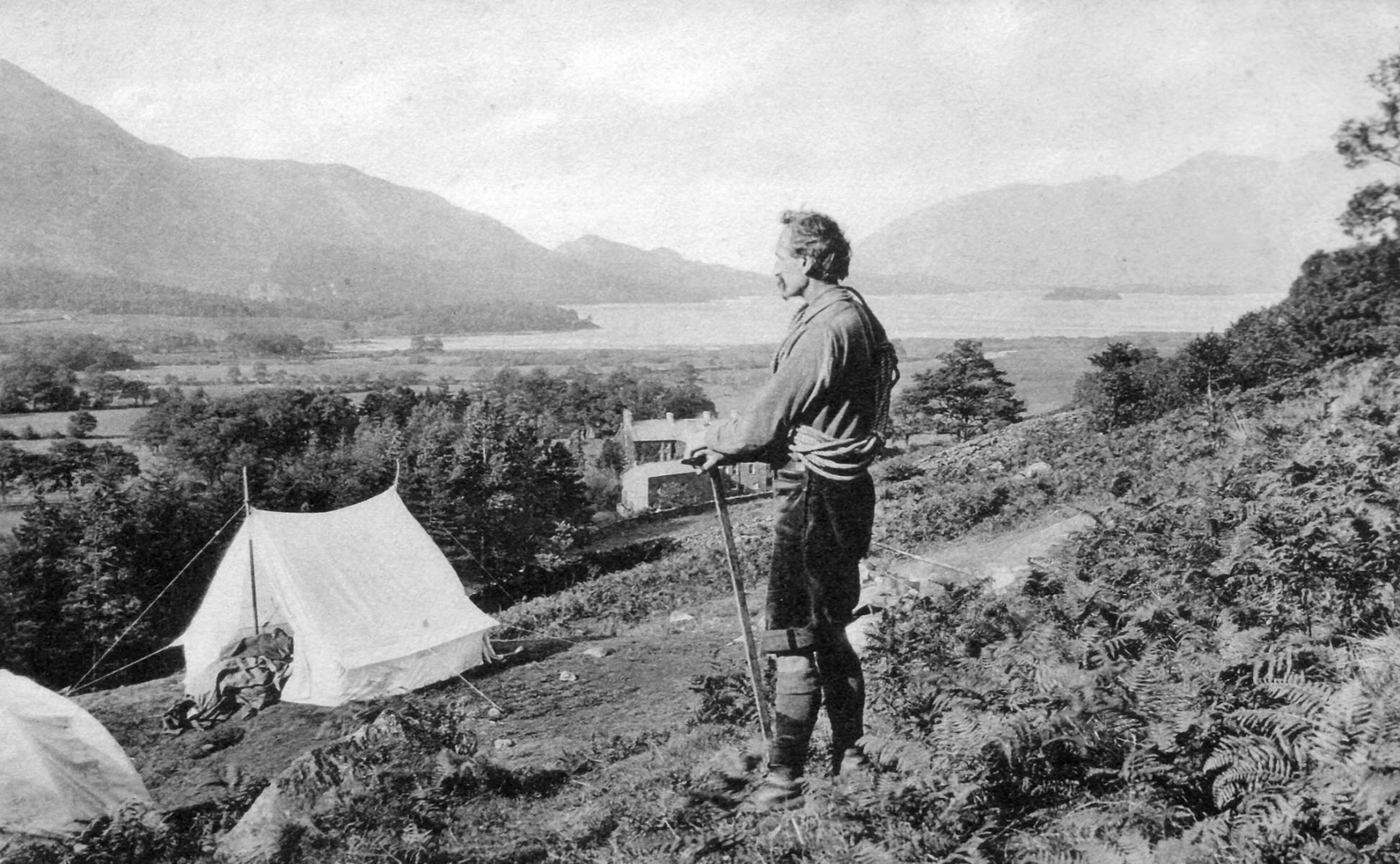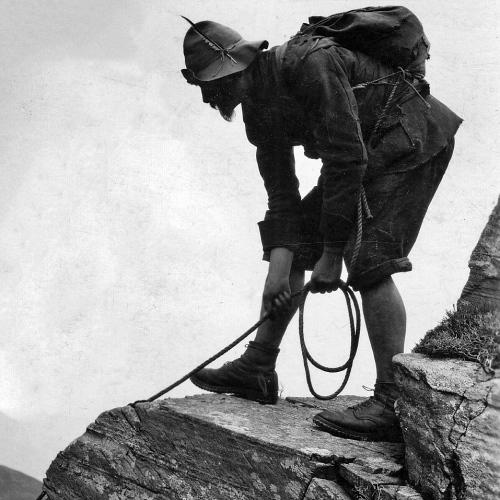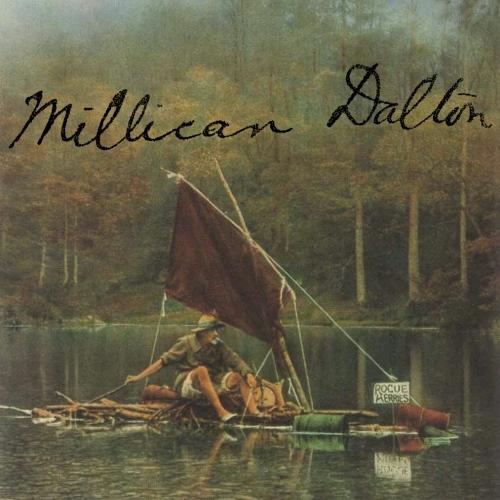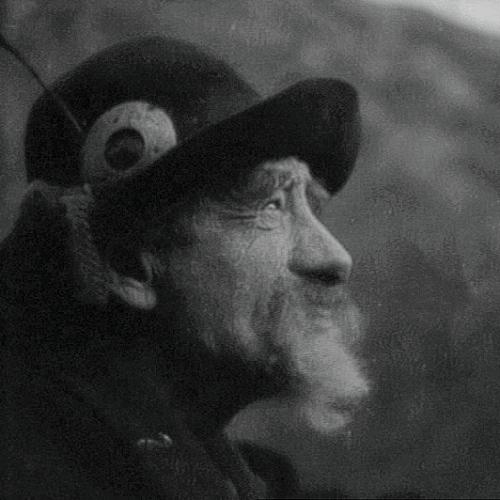MILLICAN DALTON
A Search for Romance & Freedom
A man ahead of his time
Millican Dalton was a luminary of the twentieth century who audaciously chose to treat his life as a chemical experiment. A quintessential English eccentric, he found enduring happiness living a simple life in the Great Outdoors
If your dream is to drop out of the rat race, this is the handbook on how to do it.
Essex and mountains might seem an unlikely combination, but they come together in the extraordinary figure of Millican Dalton. In the second edition of this well established biography, author M. D. Entwistle examines the life of this self-styled Professor of Adventure, widely dubbed the "Caveman of Borrowdale," who quit a stifling job as an insurance clerk to fulfil his dreams of becoming one with Mother Nature; and whose peculiar life-journey has become an enduring legend of the English Lake District.
Millican Dalton was born on 20 April 1867 in the remote mining village of Nenthead, Cumberland. A product of Quaker stock, he later attended Friends School, Wigton, after which he moved south with his family in search of a better future. Exchanging the wide open spaces of Cumberland for the dreaded London smog, the family initially settled in Finsbury Park. Millican's early working years were spent in heart of the City of London where he had secured a position as an insurance clerk. A thrill-packed existence it wasn't, and after only a short period of time within the confines of his office, he realised it was dull, repetitive and boring. He felt trapped and wanted to be free.
Away from the workplace, Millican and his brothers had become keen open-air enthusiasts and having subscribed to the revolution in the Great Outdoors they became faithful disciples of cycle-camping and mountaineering. This had a huge influence on his outlook, and disappointed with limited breaks from the workplace in which to enjoy his passions, he developed aspirations of transforming his existence into one long holiday. Life then become steadily more unconventional, when, at the beginning of the twentieth century, he substituted his terrace house for an acre of land in the rural community of Billericay, Essex, where he moved into a tent and lived off his wits.
Time passed quickly, and Dalton's dreams of a new career as a mountain guide moved closer; the outdoors having taken over every aspect of his life. Luckily for him, at the age of 36, a small legacy enabled him to quit his orthodox job in the mundane commercial sector and he headed to Switzerland to train for his new role. It was around this period that he also conjured up the phrase that was to describe his new working life and his dreams. He titled himself the "Professor of Adventure." The name said it all. Under Dalton's tutelage, those seeking an escape from the stress and dreariness of the rat race could join one of his whimsical guided tours and learn the skills associated with camping, campfires, rock climbing, and ghyll scrambling, in 'far-flung destinations' such as Ireland, Wales, Scotland, the Swiss Alps and the Austrian Tyrol.
Thereafter he spent each summer, for almost 50 years, in the Lake District's Borrowdale valley where he established himself as a "Dealer in Adventures" and his unpresedented marketing of "Camping Holidays, Mountain Rapid Shooting, Rafting, Hair-Breadth Escapes" made him into a leading light in the world of mountaineering. Huge change was afoot when mixed-sex camping parties, regarded as a social taboo by guardians of traditional values, bought into Dalton's knowledge and experience of the open-air—he shifted social boundaries by promoting women as equals and simultaneously quashed the gender-gap in outdoor pursuits—an act which was unheard of at the time. With introductions to self-development and alternative thinking, pupils gained close contact with a role model who, like all great professors, guided them through the pathways of new philosophies. For by now Dalton had evolved a complete thought system based on a sturdy self-reliance, minimum materialism and close contact with Nature.
He was a man of integrity and principles. An ardent socialist, pacifist, vegetarian and teetotaller, he grew his own food and was at the forefront of recycling, furnishing his life with whatever he could scavenge from the local tip. As a firm advocate of progressive and social movements, he became a promoter of world peace, ever confident in the power of philosophy over arms. A man well ahead of his time, he lived a life of stoic simplicity; not though circumstance but by personal choice. However, he had vices—a severe weakness for strong black coffee and Woodbine cigarettes—that formed the cornerstone of his daily routine.
In the winter months Millican led parties on expeditions to the snow-packed mountaineering resorts of Great Britain and Europe, and, also to augment his income, he worked at his sewing machine, producing a line in lightweight tents and rucksacks—throughout his life he was an experimenter, pioneer and innovator in the field of minimalist camping equipment.
He lived the remainder of his life in the open, sleeping under rock outcrops or in tents, forest huts and bivouacs, with only the "basic necessities of life"; always 'comfortable' on his bracken mattress and wrapped-up in the "wondrous comfort" of an eiderdown quilt. Never one for roughing-it, eventually, in search of a more permanent summer base, Dalton moved into a large split-levelled cave on the eastern flank of Castle Crag in Borrowdale; an area dubbed by many as the most beautiful square mile in Lakeland. This spacious cave, hewn from the slate crag long ago, which he called "The Cave Hotel," had two 'rooms' and a constant supply of water through a fissure in the ceiling. The transition from suburbanite to caveman had well and truly been made!
Millican seemed as much a part of Lakeland as the rocks themselves. His bearded, craggy face, topped by a battered Tyrolean hat and decorated with a pheasants feather, grew increasingly to look like a landslide on one of the fells. Distinctive home-made clothes and a gangling figure meant that he was instantly recognisable. He became one of the "sights" of Keswick and his image could be purchased in the form of postcards and prints from the many photographic emporiums in the town.
Later in life he moved away from Essex and settled in a community of dropouts and alternative-types in the Buckinghamshire village of Marlow Bottom. At this time the valley was totally rural, offering a peaceful retreat 'far from the madding crowd' yet within easy reach of Marlow and High Wycombe. He was well respected by his neighbours who, whilst thinking he was rather odd, considered him to be a true gentleman.
Meanwhile the years and the decades flowed by, but Dalton's resolve remained strong; his uncompromising lifestyle remained unaffected, and he willingly transcended decades of self-inflicted hardship, levels of which would have broken the average person. Even with the advance of old age he continued to camp out in all weathers, until his final demise in the Arctic conditions of 1947 when his shack burnt down and he moved into one of his handmade cotton tents. Life became too hard to bide for the septuagenarian, and, succumbing to illness, Millican Dalton died alone in hospital 5 February far away from the mountains he loved so much.
There are ample illustrations throughout the book, including 143 vintage black and white photographs and illustrations, the majority of which were previously unpublished. Further to the well researched biographical details, the author asks the reader to consider whether, bearing in mind the evidence he provides, Millican Dalton may have played a greater role in the development of British rock climbing than first assumed, and whether his reputation for eccentricity has overshadowed his achievements. Evidence is also provided to highlight Dalton's work as a social engineer by facilitating the promotion of women as equals through dress reform and empowerment.
One of the more dramatic events of Dalton's later years came in 1940, when World War II was at its height. After writing to Winston Churchill demanding an immediate end to the hostilities because they were interfering with his liberty, he received a visit from the Air Raid Warden for Keswick who had noticed a campfire burning in his Borrowdale 'Cave Hotel', and climbed the mountain to tell him "Put that light out!"
Dalton had never bowed to social conventions and he wasn't going to start now.
The 'fire' kept on burning...and it still burns today in the pages of his biography.
THIS BOOK WAS SHOWCASED AT THE 18TH INTERNATIONAL FESTIVAL OF MOUNTAINEERING LITERATURE 2005 AND THE KENDAL MOUNTAIN FESTIVAL 2005
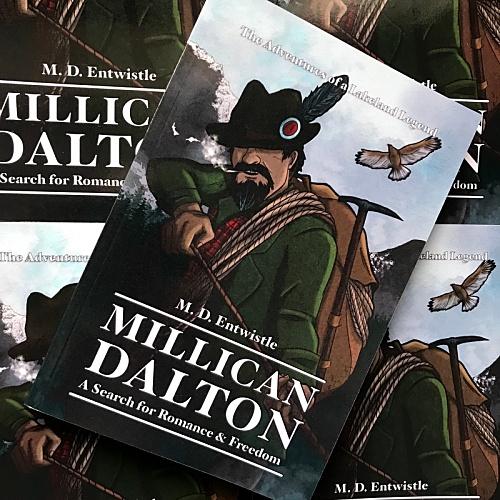
MILLICAN DALTON
M. D. Entwistle
- £13.99 + P&P (or national currency equivalent)
- Available worldwide
- ISBN-13: 978-0-9547213-2-9
- Second edition - Published 17 January 2022
- Perfect bound paperback
- 15.24 x 1.7 x 22.86 cm - 472 grams
- 295 pages
- 78000 words
- 143 black & white photographs & illustrations
- English language
What they're saying...
Reviews published in the mainstream media offer a valuable independent insight into a books value. Here is a selection for your perusal:
I wrote a piece about Millican to go with the images for my last book and I owe much to your extremely well written and researched biography!
THE ALPINE JOURNAL 2005
A life that well deserves this excellent tribute.
CUMBRIA MAGAZINE
Millican Dalton has achieved near mythical status; indeed so mythical that perhaps some already doubt whether the so-called Borrowdale Caveman really existed at all. He certainly did and M. D. Entwistle has painstakingly investigated Dalton's extraordinary and unconventional life through articles, letters and by interviewing his friends.
COLIN WELLS - OTE MAGAZINE
A useful summary of the life of one of Britain's great climbing eccentrics.
MICK TIGHE - TGO MAGAZINE
M. D. Entwistle's finely crafted story makes an enthralling read and hitherto unpublished photographs reflect the era well.
HARRY MEAD - ENTERTAINMENT NORTH EAST
Dalton merits the higher profile that Entwistle's well-researched and affectionate tribute, amply illustrated with pictures of its striking subject, should achieve.
BOOKCASE - CARLISLE
Entwistle has researched the life of this indomitable spirit and his admiring book breathes new life into a local legend.
THE CUMBERLAND NEWS
If you had walked through Borrowdale in 1941 you might well have come across a caveman. Millican Dalton was an educated, cultured English eccentric who chose to dwell in a cave and live off the land. His heavy smoking disguised his heavy smell and when he wasn’t guiding tourists over the fells he was to be seen crouched over his camp fire or in the streets of Keswick. Millican Dalton was one of Cumbria’s real characters.
In the media...
Millican Dalton: A Search for Romance & Freedom has been featured by the following broadcasters:
LAKELAND RADIO 2004
BBC RADIO CUMBRIA WITH VAL ARMSTRONG 2004
ITV2 THE LAKES (SEASON 2) WITH RORY MCGRATH 2011
BBC1 COUNTRYFILE 2015
BBC1 THE LAKES WITH PAUL ROSE 2018
